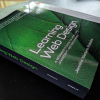I think it’s really key to understand what AI is good for and where it falls short. Not just in terms of results, but in terms of externalities as well.
To that end, this is a piece worth reading. To me, the golden nugget is this (when discussing who will succeed with AI agents):
[T]he winners will be teams building constrained, domain-specific tools that use AI for the hard parts while maintaining human control or strict boundaries over critical decisions. Think less “autonomous everything” and more “extremely capable assistants with clear boundaries.”
